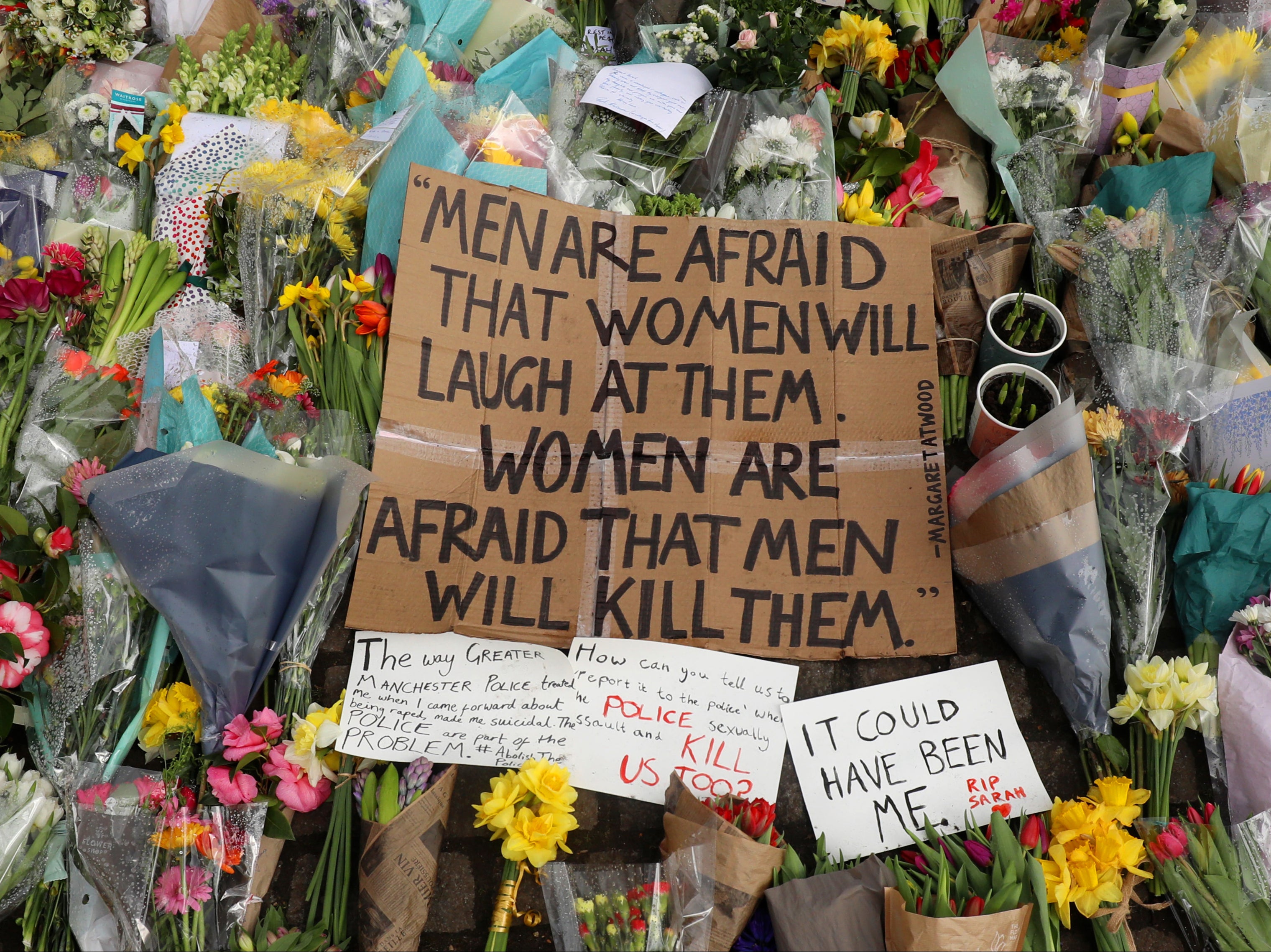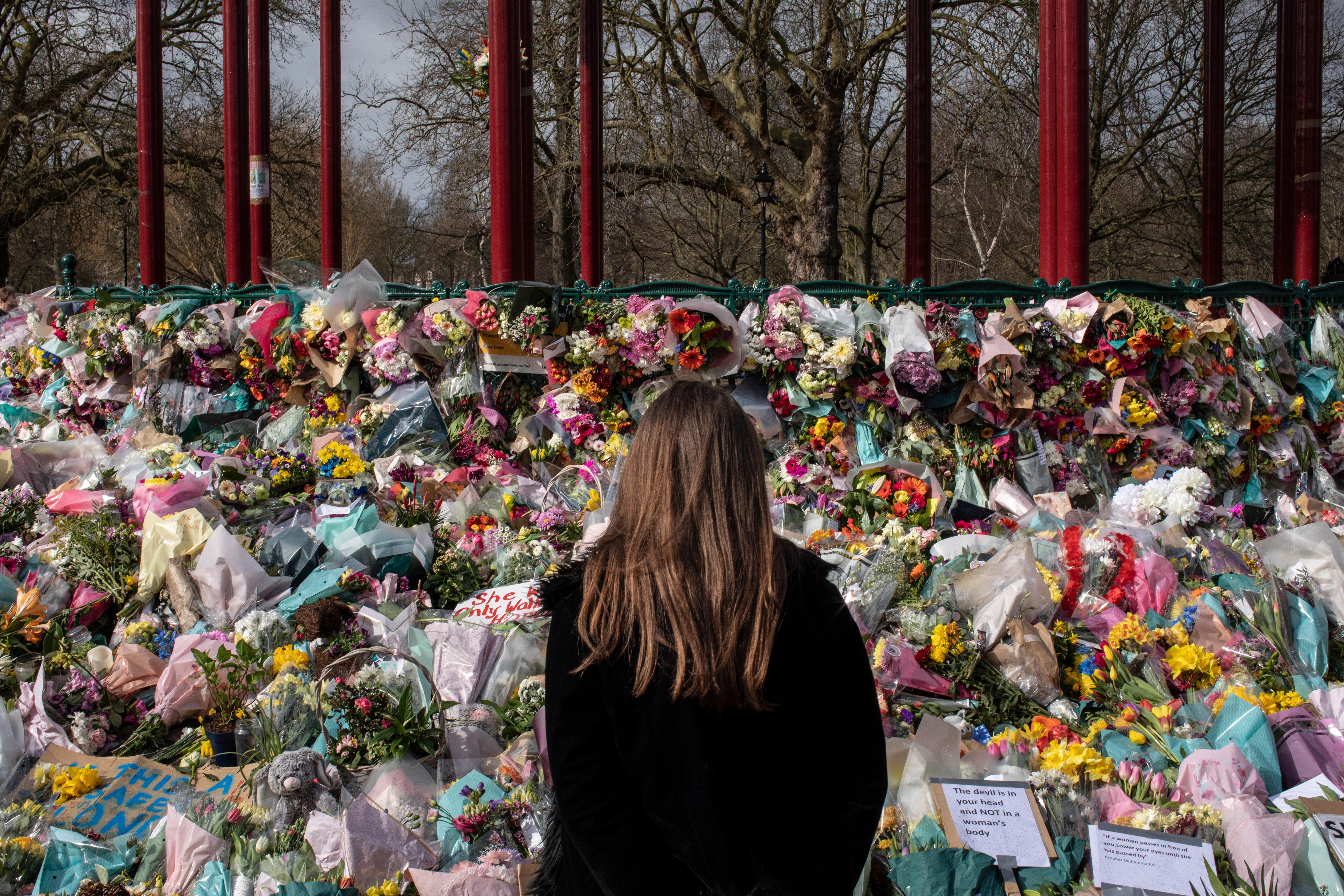Policing bill disregards ‘needs’ of domestic abuse and sexual violence victims, warn campaigners
Legislation ‘entrenches reliance on powerful institutions with histories of discriminatory approaches and weak accountability mechanisms,’ says rights group
Your support helps us to tell the story
From reproductive rights to climate change to Big Tech, The Independent is on the ground when the story is developing. Whether it's investigating the financials of Elon Musk's pro-Trump PAC or producing our latest documentary, 'The A Word', which shines a light on the American women fighting for reproductive rights, we know how important it is to parse out the facts from the messaging.
At such a critical moment in US history, we need reporters on the ground. Your donation allows us to keep sending journalists to speak to both sides of the story.
The Independent is trusted by Americans across the entire political spectrum. And unlike many other quality news outlets, we choose not to lock Americans out of our reporting and analysis with paywalls. We believe quality journalism should be available to everyone, paid for by those who can afford it.
Your support makes all the difference.The government’s controversial new policing bill disregards the “needs” of sexual and domestic violence victims, campaigners have warned.
Outrage about the legislation, which MPs debated on Monday ahead of a vote on Tuesday, has raged after the police faced fierce criticism over their aggressive handling of a vigil to mourn Sarah Everard over the weekend.
Dame Cressida Dick, the Met commissioner, has rebuffed calls to step down after her officers grabbed women standing on Clapham Common’s bandstand before taking them away while others at the vigil screamed and cried out. The police said it had to act to safeguard public health during the coronavirus pandemic.
The furore has led to renewed focus on the Police, Crime, Sentencing and Courts Bill – with many marching from Scotland Yard to Parliament Square on Sunday to pay tribute to Ms Everard and condemn the police response to the vigil telling The Independent they were concerned about the legislation.
Read more
- Patel agrees with claim that Sarah Everard vigil was ‘hijacked’ by extremists
- Opinion: Women have been forgotten by government – the police bill proves it
- Public should be ‘really worried’ about new crackdown on right to protest, ex-police chief says
- Priti Patel accused of undermining democracy with planned crackdown on protests
Labour plans to vote against the legislation. The party warned it could lead to harsher penalties for damaging a statue than attacking a woman.
Prominent women’s rights organisations and MPs have also raised fears about the legislation as they warned it overlooks survivors of sexual and domestic abuse.
Rights of Women, a leading women’s rights legal charity, said the wide-ranging 300-page bill comprised “a raft of oppressive powers” which clamped down on citizens’ right to protest as well as “rolling back” human rights.
Hannah Couchman, senior legal officer at the organisation, argued the bill fails to change the “broken justice system” and help women and girls who have suffered violence or harassment.
Instead the legislation “entrenches a reliance on powerful institutions with histories of discriminatory approaches” and does not tackle the “underlying causes” which drive people to commit crime, she said.
She added: “The introduction of polygraph or ‘lie detector’ testing for those convicted of domestic abuse demonstrates the government’s failure to address this deep-rooted problem.”
Ms Couchman raised fears around incorporating the “highly controversial technology” in the justice system as she argued ministers should not “rush through” legislation that compounds inequality and includes “tokenistic gestures”.
She claimed the legislation failed to tackle decades of government underfunding of public services which address violence against women and girls, which has already resulted in services that support black and minority ethnic (BME) women being hardest hit by cuts.

“Violence against women is endemic in our state and society, and further enabled by systemic racism,” she added. “This month, the Covert Human Intelligence Sources (CHIS) Bill passed into law, providing state agents with a lawful basis to undertake the most serious forms of violence, including sexual violence, without fear of prosecution.”
But the government argues the bill will help women who have suffered sexual violence by ending the halfway release for people convicted for sexual offences like rape - with perpetrators sentenced to between four and seven years in prison for sexual offences now spending two thirds of their time in jail.
The new legislation would also allow police to implement strict bail conditions on more suspects in high-harm cases where the victim has suffered domestic abuse or sexual violence.
The measures would overturn a slew of bail measures rolled out by the government in April 2017, which campaigners warned placed domestic abuse victims at risk - saying the current system leaves women in grave danger due to victims habitually not being consulted or informed when a perpetrator’s bail conditions come to an end.
The new measures, proposed under the bill, would be called “Kay’s Law” to commemorate Kay Richardson who was murdered by her ex-partner in August 2019 after he was handed the keys to their house when released without bail conditions despite there being evidence of domestic abuse he perpetrated against her.

But women’s rights charities remain apprehensive about other elements of the legislation - with Women in Prison saying it was highly worrying the legislation’s changes to sentencing are not “rooted in evidence”.
The charity warned BME women are more likely to be “over-policed, criminalised and receive disproportionately harsher treatment” such as being handed a jail sentence - saying the legislation will “further entrench” this issue due to proposals to make sentences more stringent.
Dr Kate Paradine, chief executive of Women in Prison, said: “This bill will put a sledgehammer through the government’s aim to reduce reoffending and the number of women in prison. Instead, the proposed draconian laws risk sweeping more women up into the criminal justice system, particularly women from black, Asian and minority ethnic communities.
“Nineteen in twenty children have to leave their home when their mothers go to prison, and if this bill passes in its current form, more families will unnecessarily be torn apart. Sending more people to prison won’t solve the problems in our communities that bring people before courts.
“Parliament now has a chance to take a common-sense approach to ensure our justice system tackles the root causes of crime.”
BME women are already two times more likely to be arrested than white women, while after being convicted black women are 25 per cent more likely to be handed a custodial sentence than white women.
Last year The Independent reported on how lawyers warned police officers are accused of abusing their partners with impunity due to a “locker room culture” which turns a blind eye to domestic abuse.
David Lammy, the shadow justice secretary, said: “The tragic death of Sarah Ms Everard has instigated a national demand for action to tackle violence against women. This is no time to be rushing through poorly thought-out measures to impose disproportionate controls on free expression and the right to protest.”
The Labour MP branded the legislation a “mess” and argued it was time to “unite the country” and implement “long-overdue protections for women against unacceptable violence”.
He added: “Including action against domestic homicides, rape and street harassment. And we must tackle the misogynistic attitudes that underpin the abuse women face.”
But the government’s policy paper for the bill states they will “strengthen police powers to tackle non-violent protests that have a significant disruptive effect on the public or on access to parliament”.
Prosecution and conviction for sexual assault and rape are historically low - with government data showing in the year to March just 1.4 per cent of 55,130 rape cases recorded by police resulted in prosecution.
While government austerity measures have led to a chronic shortage of bed spaces in refuges for domestic abuse victims fleeing violence, with local authority spending on refuges cut from £31.2m in 2010 to £23.9m in 2017, forcing several to close their doors in recent years. In the UK, an average of two women are killed by a former or current partner every week.
